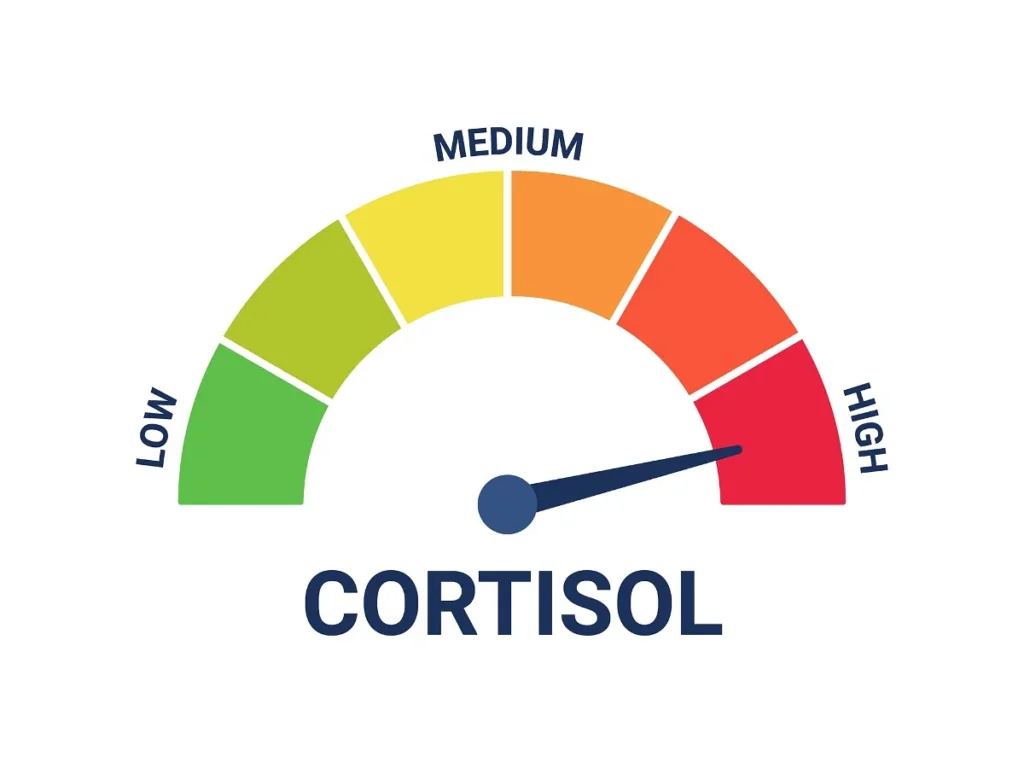Table of Contents
Did you know that the trace mineral zinc plays a crucial role in managing stress and regulating cortisol levels? Let’s delve into the fascinating connection between zinc and cortisol and explore how this essential nutrient can impact your overall health and well-being.
Brief The Article:
Zinc and Cortisol: The Connection
- Zinc plays a crucial role in the HPA (Hypothalamic-Pituitary-Adrenal) axis, which regulates the body’s stress response and cortisol production.
- The HPA axis involves the hypothalamus (brain), pituitary gland, and adrenal glands.
Zinc’s Influence on Cortisol Levels
- Zinc supplementation can help lower cortisol levels, reducing the negative impacts of stress.
Zinc and GABA: Promoting Calmness
- Zinc increases GABA (gamma-aminobutyric acid), a neurotransmitter that promotes relaxation and calmness, further aiding in stress management.
Zinc and Copper: Maintaining Balance
- Zinc and copper have an inverse relationship; low zinc levels can lead to elevated copper levels.
- Copper toxicity can result in anxiety, depression, elevated cortisol, and a heightened stress response.
Hidden Infections and Zinc: The Impact on Cortisol
- Hidden infections can deplete zinc and increase cortisol levels, exacerbating stress and potentially contributing to conditions like chronic fatigue syndrome and fibromyalgia.
- Addressing underlying infections can help preserve zinc levels and reduce cortisol.
Foods Rich in Zinc: Dietary Sources
- Good dietary sources of zinc include shellfish, pumpkin seeds, and Brazil nuts.
Zinc and Cortisol: Addressing Underlying Stress
- Zinc supplementation can be beneficial for managing stress and improving sleep.
- Addressing the root cause of infection can help restore the balance of zinc and cortisol.
Key Takeaway:
Zinc plays a vital role in regulating cortisol levels and managing stress. Ensuring adequate zinc intake through diet or supplementation, along with addressing underlying infections, can significantly impact stress levels and overall well-being.
So let’s dive into the details…
The Impact of Zinc on Cortisol Levels

Let’s talk about zinc‘s influence over cortisol. Zinc and cortisol have a significant relationship. Zinc is a trace mineral I’ve done a lot of topics on,
but it has a huge influence over something called the HPA axis: hypothalamus (which is in the brain), pituitary, and then we have adrenal. So we have this whole feedback loop going on.
The adrenals are controlled by the hypothalamus through the pituitary’s help, and zinc supports this whole pathway. So when you take zinc, you actually have the ability to lower cortisol. Zinc and cortisol interact in a way that can help manage stress levels.
- HPA axis components:
- Hypothalamus
- Pituitary
- Adrenal glands
- Benefits of zinc:
- Supports HPA axis
- Can lower cortisol levels
Zinc’s Calming Effect and GABA Production
Zinc also increases GABA, which is very calming. So when you take zinc, it calms you down. The relationship between zinc and cortisol extends to neurotransmitter production, further highlighting the importance of zinc in stress management.
- Zinc’s effects on neurotransmitters:
- Increases GABA production
- Promotes calmness
The Zinc-Copper Balance and Stress

Here’s another problem with lowered zinc: when you’re low in zinc, you’re automatically going to be a little bit higher in copper because they work together.
When you have this ratio, it’s not good because then you start getting copper toxicity or copper overload, and you get anxiety, depression, higher levels of cortisol, and it puts your body in a stress mode.
So you’re in flight or fight. The balance between zinc and cortisol can be disrupted by copper imbalance.
- Effects of zinc deficiency:
- Higher copper levels
- Potential copper toxicity
- Increased anxiety and depression
- Elevated cortisol levels
- Stress mode activation
Hidden Infections and Zinc Depletion
The other point I want to make is if you have a hidden infection in your body—some people have chronic fatigue syndrome or they have fibromyalgia or they have some type of low-grade infection behind the scenes—they’re under stress,
they have this infection, they have inflammation in the joints, other places in the throat. That is going to deplete a lot of your zinc and it’s going to raise your cortisol. So that has to be addressed.

If this situation is going on, you need to do some additional things like aloe leaf extract, colloidal silver, oregano oil to handle the deeper source of the infection so your body doesn’t have to utilize all this zinc. The connection between zinc and cortisol becomes even more crucial in the presence of hidden infections.
- Hidden infections and their effects:
- Deplete zinc levels
- Raise cortisol levels
- Cause inflammation
- Additional remedies for hidden infections:
- Aloe leaf extract
- Colloidal silver
- Oregano oil
Food Sources of Zinc

You can get zinc from shellfish, pumpkin seeds, Brazil nuts. Incorporating these foods into your diet can help maintain the balance between zinc and cortisol.
- Zinc-rich foods:
- Shellfish
- Pumpkin seeds
- Brazil nuts
Conclusion: Zinc’s Role in Stress Management

So the point of this topic is if you have some underlying stress situation or you can’t sleep and you’re trying to do everything you can, you may want to also include zinc.
Understanding the relationship between zinc and cortisol can be key to managing stress and improving overall well-being.
Thanks for reading. If you want to know more about zinc and its importance for your body’s health, go here. #ZINC
Summary
When you’re low in zinc, you’re going to be a little bit higher in copper because they work together. But, lower zinc and higher copper is not good.
This situation could create copper toxicity, which could cause:
• Anxiety
• Depression
• Higher cortisol
• Your body to go into stress mode
If you have a hidden infection combined with stress and inflammation, this situation could deplete your zinc and raise your cortisol.
A few good sources of zinc:
• Shellfish
• Pumpkin seeds
• Brazil nuts
If you have a stress issue or you can’t sleep, and you’re trying to do everything you can to fix the issue, you may also want to include zinc.
Additional-resources
FAQ
Does zinc help with cortisol?
Yes, zinc helps regulate cortisol levels:
- Zinc supports the HPA (hypothalamic-pituitary-adrenal) axis, which controls cortisol production.
- It can lower cortisol levels when taken as a supplement.
- Zinc increases GABA production, which indirectly helps reduce stress and cortisol.
- It balances the zinc-copper ratio, preventing copper-induced cortisol elevation.
- Adequate zinc levels help the body better manage stress responses.
What hormone does zinc increase?
Zinc influences several hormones:
- Testosterone: Zinc is crucial for testosterone production and regulation.
- Growth Hormone: It stimulates growth hormone release.
- Thyroid Hormones: Zinc is necessary for proper thyroid function.
- Insulin: It plays a role in insulin synthesis and secretion.
- Melatonin: Zinc is involved in melatonin metabolism, affecting sleep patterns.
While zinc doesn’t directly increase these hormones, it plays a vital role in their production and regulation.
Does zinc help adrenal health?
Zinc significantly contributes to adrenal health:
- It supports the entire HPA axis, including adrenal function.
- Helps regulate cortisol production by the adrenal glands.
- Acts as an antioxidant, protecting adrenal cells from oxidative stress.
- Supports the immune system, reducing stress on the adrenals.
- Aids in the synthesis of adrenal hormones.
- Helps maintain adrenal responsiveness to stress.
Adequate zinc intake is crucial for optimal adrenal function and overall stress management.
Can lack of zinc cause stress?
Yes, zinc deficiency can contribute to increased stress:
- Low zinc levels can lead to elevated cortisol production.
- It may cause an imbalance in the zinc-copper ratio, leading to anxiety and depression.
- Zinc deficiency can impair the body’s ability to handle stress effectively.
- It may lead to sleep disturbances, further increasing stress levels.
- Can weaken the immune system, putting additional stress on the body.
- May contribute to mood disorders and irritability.
Ensuring adequate zinc intake is important for maintaining proper stress response and overall well-being.
Zinc deficiency cortisol
Zinc deficiency can significantly impact cortisol levels:
- Elevated Cortisol: Lack of zinc can lead to increased cortisol production.
- HPA Axis Dysfunction: Zinc deficiency may disrupt the normal functioning of the HPA axis.
- Stress Sensitivity: It can make the body more sensitive to stressors.
- Impaired Cortisol Regulation: The body may struggle to properly regulate cortisol levels.
- Chronic Stress: Prolonged zinc deficiency can contribute to chronic elevation of cortisol.
- Adrenal Fatigue: Over time, this can lead to symptoms associated with adrenal fatigue.
Addressing zinc deficiency is crucial for maintaining healthy cortisol levels and overall stress management.
Nootropics to lower cortisol
Several nootropics may help lower cortisol levels:
- Ashwagandha: Known for its stress-reducing and cortisol-lowering effects.
- L-Theanine: Promotes relaxation and can help reduce cortisol.
- Phosphatidylserine: May blunt cortisol response to stress.
- Rhodiola Rosea: Adaptogen that helps the body manage stress and cortisol levels.
- Bacopa Monnieri: May help reduce stress and cortisol levels.
- Lemon Balm: Has calming effects and may help lower cortisol.
- Ginkgo Biloba: May help reduce stress-induced cortisol elevation.
Always consult with a healthcare professional before starting any new supplement regimen.
Supplements to reduce cortisol
Various supplements can help reduce cortisol levels:
- Magnesium: Helps regulate the HPA axis and can lower cortisol.
- Vitamin C: High doses may help reduce cortisol levels.
- Omega-3 Fatty Acids: Can help reduce stress and lower cortisol.
- B-Complex Vitamins: Support adrenal function and help manage stress.
- DHEA: May help balance cortisol levels.
- Holy Basil: An adaptogenic herb that can help lower cortisol.
- Probiotics: Can influence the gut-brain axis and help manage stress.
- Zinc: Supports the HPA axis and can help lower cortisol levels.
It’s important to address underlying causes of high cortisol and consult with a healthcare provider before starting any new supplement routine.




